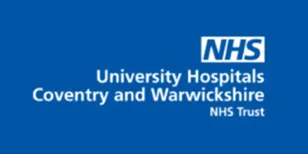Exploring the experience of children who have provided cardiopulmonary resuscitation (CPR) and the impact of CPR training
A cardiac arrest is when someone’s heart stops and they collapse. People who are there at the time (lay responders) can improve the person’s chance of survival, by calling an ambulance, starting cardiopulmonary resuscitation (CPR) and using a heart restarter (defibrillator). CPR is now taught to students aged 11-18 in UK schools. This should help increase the number of people who know how to help.
Research with adults indicates that providing CPR is emotionally challenging for lay responders and some require formal psychological support. Adults report that they did not feel adequately prepared for this impact by CPR training.
There is no research exploring children and young people’s experiences of being a lay responder. Exposure to traumatic events during childhood can have lifelong impacts, but effective support afterwards can decrease psychological harm, resulting in long-term benefits and a reduction in healthcare service use.
Our research study involved interviewing young people (11-23 years-old) in the UK about their experiences of helping with a resuscitation attempt, support following it and views of any CPR training they had. We will use what we learn to inform CPR training and influence support provision for young people who are involved in providing CPR. This is what we found.
Findings – Understanding the impact on 11-18 year-olds of doing CPR
Why this matters
- Cardiopulmonary Resuscitation (CPR) can help people survive when their heart stops (cardiac arrest). Young people can learn how to do CPR in school.
- We didn't know what young people do, what they think and how they feel when they do CPR in real life.
- Researchers from King's College London, Oxford University and the University of Warwick and people with lived experience of cardiac arrest, CPR and training asked young people to share their stories through in-depth interviews.
- We talked to 12 young people who had done CPR on a friend, family member or a stranger when they were 11-18 years old.
- This is what they told us.
1. Training
- "At school we were taught how to do CPR. We did not think we could ever use CPR so it did not feel real." – A young person
2. The Moment
- "It's impossible to prepare for." – A young person
- Training helped
- Every situation is different – who collapses, where it happens, and who else is there.
- Some froze, some went on autopilot, and others felt the weight of responsibility.
- Helping at or witnessing a cardiac arrest can be scary and emotional.

3. After
- "The experience always stays with you, whether that outcome was good or bad." – A young person
- Young people spoke of shock, flashbacks, triggers, and new perspectives on life and death.
- Reassurance from healthcare professionals at the scene can help young people to deal with feelings of self-doubt or having done something wrong.
- Whether you are bereaved or not after doing CPR, support is vital. Help came both formally (schools, counsellors) and informally (friends, family).
- Acting in the moment often changed how they saw themselves: more confident, responsible, and capable.
- All young people said they'd want to help again.

What young people want others to know
Young people need:
- Education that prepares them for CPR in real life
- An understanding of how they might feel and respond
- Reassurance from a healthcare professional at a cardiac arrest
- Someone they can talk to about their expereince
Remember, it's ok not to be ok after doing CPR.
- Get support from Sudden Cardiac Arrest UK
- Find out more at kcl.ac.uk

Get interactive
Access our interactive slide detailing what happens when young people step in and administer CPR on another person.
Our infographics were designed by Nifty Fox Creative.
Aims
The Child CPR Study aimed to generate new knowledge about the experiences and needs of children and young people who are involved in providing CPR in the community. The overall objectives were to:
- Explore the impact on their emotional/psychological wellbeing and relationships;
- Explore the support (formal and informal) they seek and/or receive after providing resuscitation;
- Explore the impact of CPR training on their experience of resuscitating someone and willingness to help in a future resuscitation attempt.
Findings will be used to inform and optimise CPR training for this age group and the support offered after involvement in a resuscitation attempt. It may also highlight important areas for further investigation in this under-researched area.
Methods
Researchers at King’s College London asked young people who have provided CPR in a real-life emergency about what this was like for them. We will learn from the experiences and ideas they shared with us, and use this to help improve CPR training and support.
Get involved
You might be able to help us with this research. The information leaflets below explain more about this research and what will happen if you agree to take part. Please get in touch with the research team to find out more if:
- You are a young person who has provided CPR to someone having a cardiac arrest, or
- You are a parent of a young person who has had this experience.
Please note
31 January 2025: we are no longer recruiting new participants to this study. Many thanks to those who took part. We are analysing the data now, and will share our findings later this year. Please look out for information about the study findings on this webpage.
Information leaflets
For young people between 11-15 years old
If you are less than 16 years old, we will need to speak with your parent first. We will need their permission before we can speak with you.
- For adults with parental responsibility for potential participants who are 11-15 years old (PDF)
- For young people aged 11-15 years old (PDF)
For young people 16-23 years-old:
Our Partners

University of Warwick

University of Oxford
Principal Investigator
Investigators
Affiliations
Funding
Funding Body: NIHR Research for Patient Benefit (RfPB)
Amount: £158,071.00
Period: September 2023 - June 2025







